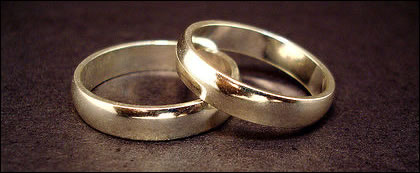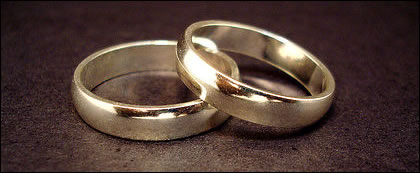
What does the future hold for the institution of marriage? I ask because we’re constantly hearing about the ‘deinstitutionalisation’ of marriage. Marriage no longer occupies the central, solid role it once did, divorce is on the rise and people are getting married later. All these seem to point to a weakening of marriage in many Western societies.
So, how will marriage be viewed in the future? As a quaint custom fast dying out whose proponents can only be found amongst die-hard traditionalists? As an indicator of advanced age, social backwardness and constriction? In short: is marriage dying?
Clue to marriage’s future
Well, we’ll have to wait and see, but a clue about the future of marriage comes from a new study published in the Journal of Marriage and Family. Manning, Longmore and Giordano (2007) asked adolescents whether they expected to get married in the future and/or whether they saw themselves engaging in marriage’s ambiguous rival: cohabitation. And perhaps the results might surprise those who feel marriage is on the long slide to oblivion.
First you need to know who the participants were before you can judge the results. They were kids from the 7th, 9th and 11th grades (that’s 12, 14 and 16 year-olds respectively) from Lucas County, Ohio in the US. This is a mostly urban, metropolitan environment. Bear in mind that it can be difficult to generalise these findings to other areas, although they are useful indicators.
Surprisingly, then, adolescents expected it was much more likely they would marry than they would cohabit. Here are some of the headline findings for marriage:
- 76% of adolescents expected to marry in the future (probably or definitely).
- 19% thought it ‘a little’ or ‘somewhat likely’ they would marry.
- 5% thought they would never marry.
And for cohabitation:
- 30% expected to cohabit (probably or definitely).
- 26% thought it ‘somewhat likely’ they would cohabit.
- 21% said there was ‘a little’ chance they would cohabit.
- 23% expected never to cohabit.
We can also make some inferences from the patterns of adolescent’s responses. For example, half the adolescents thought they would cohabit and marry at some point. Also, only very few adolescents thought they would cohabit but never marry.
There were a number of factors that affected whether young people thought they would marry. For example those from single-parent families thought themselves less likely to marry, as did those from ethnic minorities and those who had never dated.
Social expectations
While these results seem positive for the institution of marriage, my main reservation is that the adolescents, especially the younger ones, are simply answering how they think they are supposed to be answering. Does a 12 year-old really know what it means to cohabit or to get married? Perhaps this study is telling us more about existing social norms than it is about the future of marriage itself.
That said, if young people still think marriage is important, then it probably still is. And it will probably continue to be important for quite some time.
Read more on the psychology of relationships.
Reference
Manning, W.D., Longmore, M.A., & Giordano, P.C. (2007). The Changing Institution of Marriage: Adolescents Expectations to Cohabit and to Marry. Journal of Marriage and Family, 69(3), 559-575.

